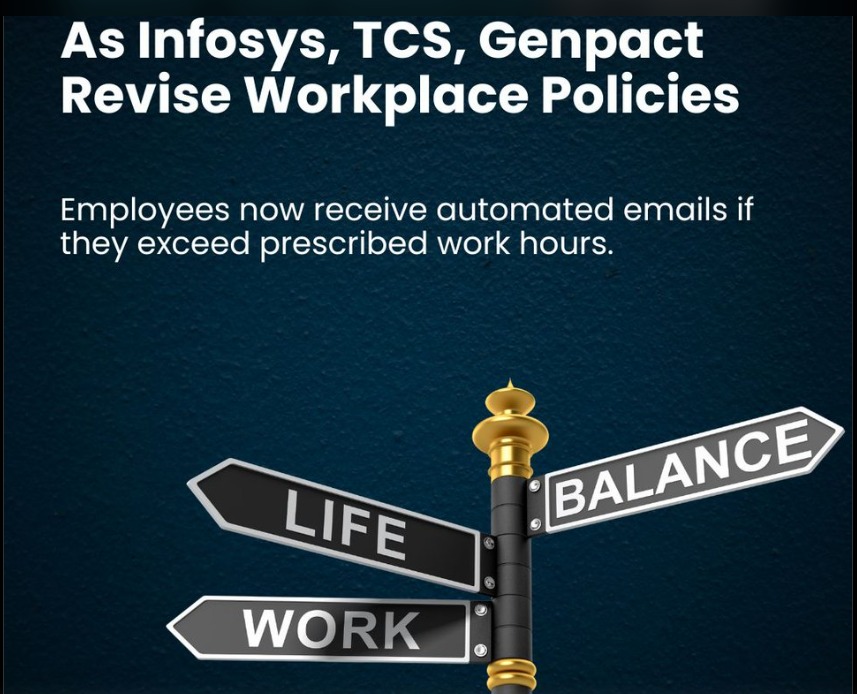
Follow WOWNEWS 24x7 on:
Updated: July 08, 2025 07:17

India's top IT firms—Infosys, TCS, and Genpact—are rewriting the rule book on employee engagement, challenging new questions regarding productivity, happiness, and the holy grail of work-life balance.
Infosys: Monitoring with a Mindful Lens
Introduced automated notifications for remote workers for more than 9 hours 15 minutes daily
They maintain extensive work hour records and promote breaks, delegation, and disconnection outside work hours
Consolidating its 10 days in office per month hybrid model since November 2023
Evidently a low-profile sequel to founder Narayana Murthy's initial 70-hour workweek proposal
Genpact: Paying for Hours, Stoking Controversy
Reportedly implemented a 10-hour workday, which caused internal discontent and widespread outrage
Productivity monitored through internal portals; workers can earn as much as 500 points (₹3,000) per month
Additional overtime bonuses, even though the company subsequently clarified a routine 9-hour.
Lambasted for informal communication and lack of transparency
TCS: Flexibility vs. Utilization
New policy demands 225 charged business days annually, decreasing bench time to 35 days
Employees need to spend 4–6 hours a day on learning platforms like iEvolve and LinkedIn Learning
Physical presence in the office is now required, ending flexible work arrangements
The All India IT and ITeS Employees' Union's action has labeled the move anti-worker
These developments arrive as the world is seeing growing interest in four-day workweeks and preventing burnout. Yet India's technology sector appears to be tightening the reins, and sustainability and employee morale questions are raised.
Sources: Economic Times, NDTV Profit, Hindustan Times, Business Today, DQ India, BW People, CNBC TV18, The Hindu.




